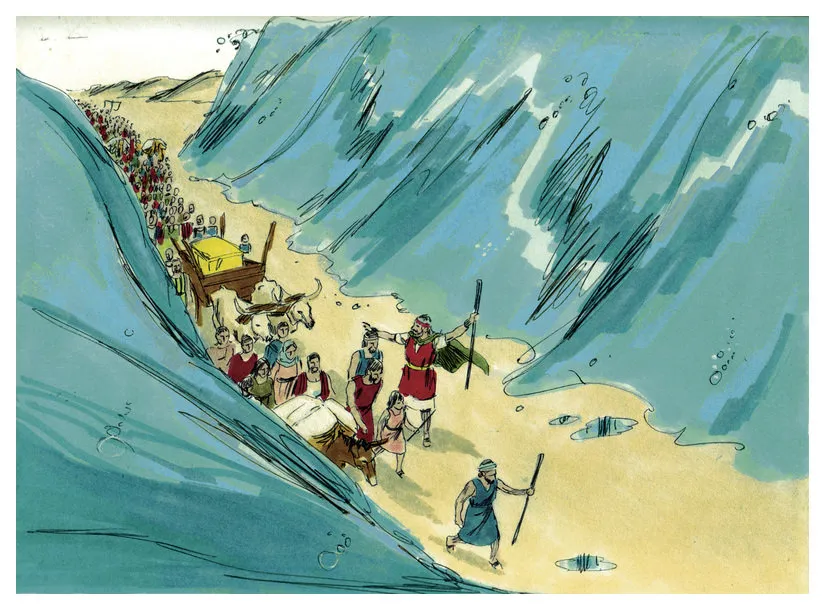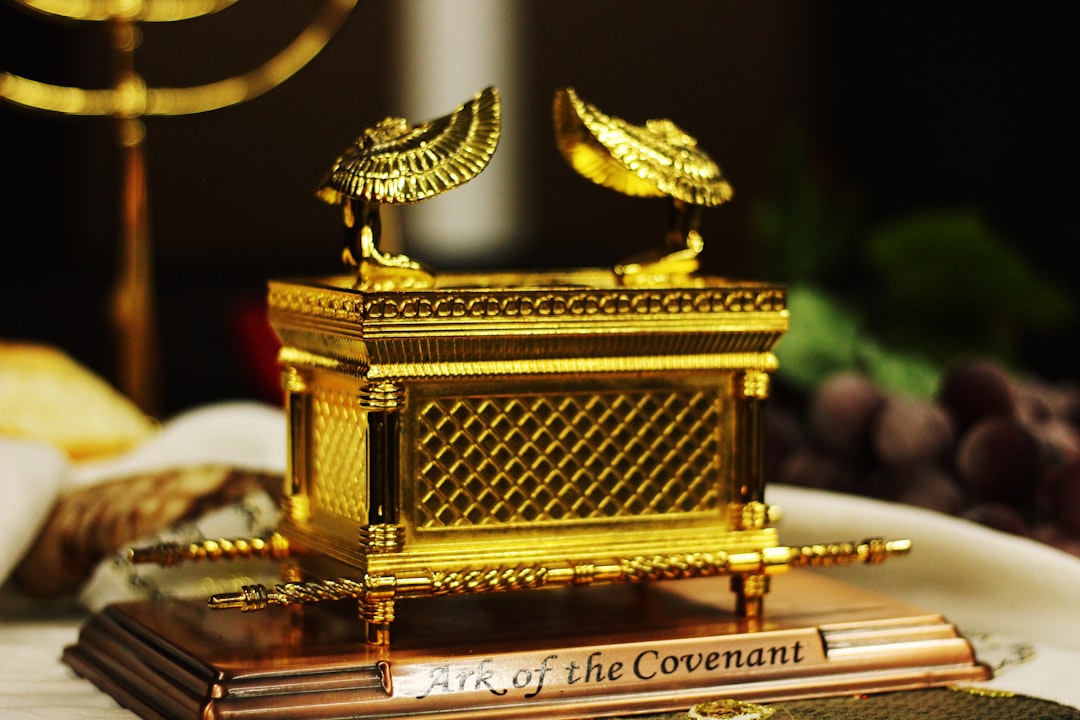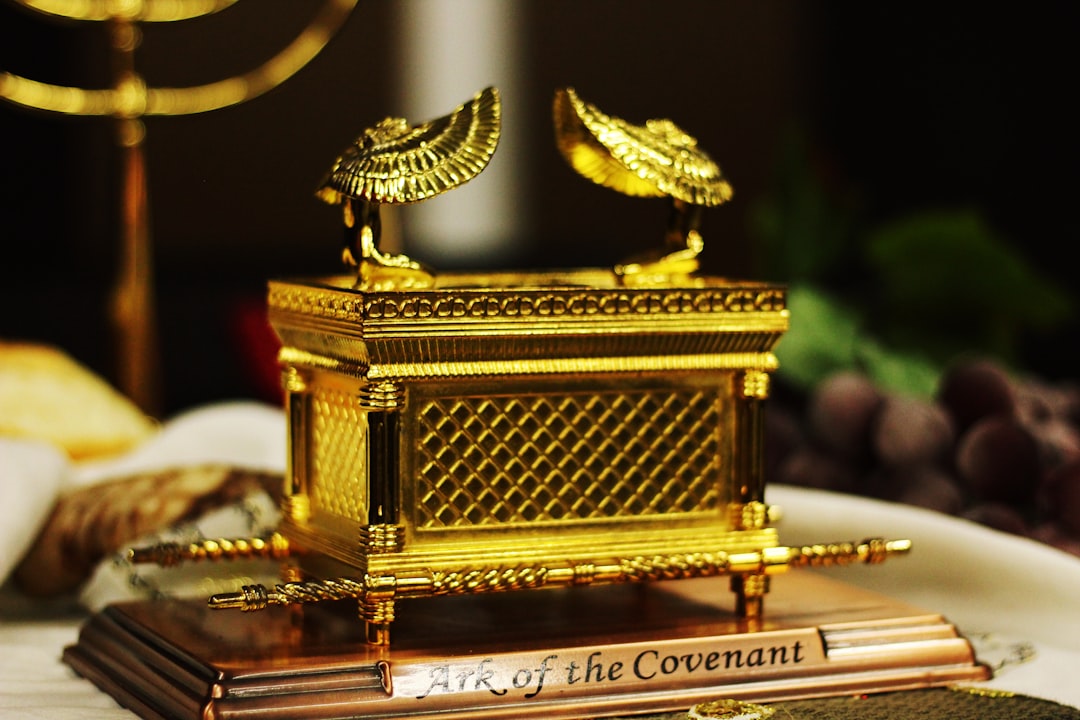In the book of Genesis, the story of Noah’s Ark is well-known. But few people are aware of the divine promise made to Noah, known as the Noahic Covenant. In this blog post, we’ll dive deep into the origins of this covenant, the symbolism behind its most notable symbol, and humanity’s role in the covenant. Additionally, we’ll touch on covenantal theology and why this covenant remains one of the most important in biblical history. So, read on to learn more about the Noahic Covenant.
Origins of the Noahic Covenant

Long before the advent of the flood, humanity had strayed from the path of righteousness, with evil and wickedness becoming the norm rather than the exception. This grieved the heart of God, who resolved to purge the earth of corruption and sin in one fell swoop. And with that, he decided to send a deluge to destroy all life on earth, except for Noah, his family, and the animals they saved from the floodwaters.
After the waters receded, God made a divine agreement or covenant with Noah, promising to never bring a flood to devastate the earth again. The Noahic covenant, as it came to be known, was a sign of God’s faithfulness to His creation, a symbol of the redemption and salvation He has promised to His children, and a clear indication of the consequences of sin and rebellion against His divine will.

At its core, the Noahic covenant represented God’s unending love and grace for humanity despite all the hurt and pain they had caused each other and the earth. It was a powerful testament to the power of faith, obedience, and sacrifice in God’s eyes, with Noah showing extraordinary levels of faithfulness and commitment to God’s commands even in the face of global destruction.
And perhaps most importantly, the Noahic covenant set the stage for the arrival of the Messiah, Jesus Christ, who would come to offer humanity a way to everlasting life, peace, and harmony with God. As such, it forms a crucial part of covenantal theology and can teach us so much about righteousness, divine judgment, and the spiritual significance of biblical themes.
In short, without the Noahic covenant, the Bible’s central tenets of righteousness, grace, and obedience may never have existed, and we would be living in a world without the promises of salvation and redemption. It is a testament to the everlasting power of God’s love and the incredible depths of His grace that we have this covenant as a means of understanding our role in His divine plan.
To summarize, here are the key takeaways from this section:
- The Noahic covenant was God’s promise to never bring a flood to destroy all life on earth again.
- It serves as a symbol of God’s faithfulness, redemption, and salvation for His children.
- It teaches us about the consequences of sin and rebellion against God’s divine will.
- The Noahic covenant plays a vital role in covenantal theology and sets the stage for the arrival of Jesus Christ.
God’s Promise to Noah
After the flood that engulfed the earth, God made a divine agreement, or a covenant, with Noah. This covenant is known as the Noahic Covenant and it’s an essential element of the Bible’s Old Testament. In this covenant, God promised to never again destroy the earth with a flood, preserving both humanity and animal kind.
God’s promise to Noah not only prevented further destruction but also served as a sign of divine judgment. God warned Noah in advance of His plan to flood the earth to cleanse it of corruption. At that time, Noah, his family, and a pair of every animal on earth, were saved by God’s mercy. Noah’s reaction was one of faithfulness and gratitude. He built an altar and offered a sacrifice to God, who then made the everlasting covenant. This act of obedience and faith made Noah and his family righteous before God.
The significance of the Noahic Covenant lies in the spiritual themes it represents. First and foremost, it exemplifies God’s grace and love for His creation, despite humanity’s failures. God’s mercy is shown in His willingness to protect and preserve humanity and animal kind from destruction. This redemptive act foreshadows the salvation of all mankind through the sacrifice of Jesus Christ, who came to cleanse humanity of its sins.
Furthermore, it highlights humanity’s role in the covenant. God promised to never again destroy the earth, but this promise had a condition. Humanity had to obey God’s commands and live righteously. This condition demonstrates that although God is merciful and gracious, He still holds humanity accountable for its actions.
The Rainbow serves as a symbol of the covenant. It is a testimony to the faithfulness of God, and a reminder of His promise to never again flood the earth. Every time a rainbow appears, it shows that God remains faithful to His covenant.

In conclusion, the Noahic Covenant demonstrates God’s faithfulness, mercy, and love for His creation. It highlights humanity’s role in the covenant and sets the precedent for covenantal theology in the Bible. The promise made in the Noahic Covenant is everlasting, and the rainbow serves as a symbol of God’s faithfulness to His promise.
The Rainbow as a Symbol
After the catastrophic flooding that wiped out most of the human and animal kind, God made a promise to Noah and his family, which he sealed with a sign – a rainbow. This sign has since become an iconic symbol of God’s faithfulness and commitment to his people, and it carries significant spiritual significance that still resonates with believers today.
Here are some reasons why the rainbow matters in the story of the Noahic Covenant and its relevance in a contemporary context.
-
It’s a Reminder of God’s Promise
The rainbow is a reminder of God’s promise to Noah that he will never again destroy the earth with a flood. It’s a visible reminder of God’s faithfulness and mercy towards his people, even in the face of humanity’s disobedience and rebellion. This symbol of hope has helped countless people find comfort and joy in times of trouble. -
It’s a Symbol of God’s Redemption
The rainbow is not just a sign of God’s promise to Noah, but it also points to the greater redemption story of the Bible. It symbolizes the hope of salvation and redemption that God offers to all humanity, created in his image but marred by sin and rebellion. The rainbow is a beautiful reminder that God is always at work to restore, renew and redeem everything that’s broken in our lives and in the world. -
It’s a Challenge to Humanity
The rainbow is also a challenge to humanity – it reminds us of our responsibility to steward and care for God’s creation. It’s a call to obedience and faithful living, as we partner with God in his ongoing work of redemption and restoration. We are called to be faithful stewards of the resources and the environment around us, treating it with respect and care. -
It’s a Call to Covenant Renewal
The rainbow also serves as a call to covenant renewal, a reminder that God’s promises are not one-sided but require our active participation. We are called to respond to God’s grace with faith, obedience, and righteousness, living in faithfulness to the covenantal relationships God has established with us. -
It’s a Sign of God’s Grace
Finally, the rainbow is a profound testimony to God’s grace and love towards his people. Despite our rebellion and disobedience, God remains faithful and true to his covenant promises. The rainbow is a visible sign of that grace, a reminder of the forgiveness, mercy, and love that God offers freely to all who put their trust in him.
In conclusion, the rainbow is a powerful symbol of God’s faithfulness, redemption, and grace, carrying significant spiritual and theological themes that run through the entire Bible. As we reflect on the significance of the rainbow in the Noahic Covenant, we are invited to renew our commitment to faithful living, stewardship, and obedience, and to trust in God’s promises of salvation and restoration for all humanity.
Humanity’s Role in the Covenant
The Noahic Covenant is a divine agreement between God and humanity, as recorded in the book of Genesis in the Old Testament. This covenant was initiated by God after the great flood that destroyed all living things, except for Noah and the animals that he saved on the ark.
The Noahic Covenant is significant because it represents God’s promise to preserve humanity and animal kind, even when their actions deserve destruction. It highlights the enduring faithfulness of God and the importance of obedience for humanity to receive the blessings that God has in store for them.
« Unpacking the Mystery of Cloven Tongues in Christian Beliefs
Discovering the Importance of Spiritual Fathers in Your Life »
Humanity’s role in the Noahic Covenant is one of faith and obedience. Through the covenant, God demonstrates his love and grace towards humanity. But humanity must respond to God’s love by living in obedience to his commandments and remaining faithful to his word.
The story of Noah and the flood teaches us that God’s judgment and mercy are intertwined. We must have faith in God and obey his commandments to receive his blessings. This obedience and faith are an essential part of the covenantal theology that is prevalent throughout the Bible.
The Noahic Covenant also reveals God’s plan of salvation and redemption for humanity. Through the covenant, we see the spiritual significance of the flood, which brings about a new creation where humanity has a renewed relationship with God.
Furthermore, the covenantal theology of the Noahic Covenant extends beyond the preservation of humanity. It also symbolizes God’s faithfulness, as shown in Noah’s sacrifice after the flood. God promised that he would never again destroy the earth with a flood, and as a sign of his faithfulness, he gave us the rainbow as a symbol of his everlasting covenant.

In conclusion, humanity’s role in the Noahic Covenant is one of faith, obedience, and recognition of God’s grace and faithfulness. The covenantal theology reveals the spiritual significance of the flood, the renewal of humanity’s relationship with God, and the hope of salvation and redemption. The Noahic Covenant is a reminder of God’s enduring love for humanity and the ultimate sacrifice he made by sending his Son, Jesus Christ, to save us from our sins.
Covenantal Theology and its Significance in the Bible
Covenantal Theology is a concept that permeates throughout the Bible, and it is vital in understanding the significance of the Noahic Covenant. In its simplest form, Covenantal Theology is the study of God’s relationship with humanity throughout time. The biblical themes of salvation, redemption, faithfulness, and obedience are just a few examples of how Covenantal Theology plays a role in the Bible.
Here are three significant ways that Covenantal Theology impacts the Bible:
- Divine Agreements and the Relationship between God and Humanity:
Covenantal Theology emphasizes the relationship between God and humanity. The divine agreement between God and Noah in the Noahic Covenant is an example of how God’s promises and humanity’s obedience to that promise are intertwined. In this covenant, God promises not to destroy the world by flood again, and in return, Noah offers his faithfulness and builds an altar to God.
- Blessings and Curses:

Covenantal Theology reveals that blessings and curses are important themes in the Bible. When God made a covenant with Noah, He blessed him and his family and promised to preserve humanity and animal kind through the flood. Before this, God cursed the earth and expelled Adam and Eve from the garden of Eden after they sinned. Blessings and curses are parallel to biblical teachings on grace and righteousness.
- Covenant Renewal:
Covenantal Theology portrays the Bible as a story of God’s faithful and steadfast love for humanity. God’s covenant with Noah is one of the many ways that God renews His promises and reminds us of His steadfast love. The rainbow, which is the sign of the Noahic Covenant, is an everlasting symbol of God’s covenant with humanity. The rainbow represents that God will never again destroy the world by flood and is a symbol of His faithfulness to His promises.
In summary, Covenantal Theology explains how God’s relationship with humanity is portrayed throughout the Bible. The story of the Noahic Covenant teaches us about our roles in preserving the world and being obedient to God’s promises. The covenant with Noah also highlights how God blesses and curses us based on our actions. Lastly, through the Noahic Covenant, we see how God renews His promises and remains faithful to them throughout time.
Renewal of the Covenant
The Noahic Covenant is one of the most significant divine agreements in the entire Bible. It is the promise that God made to Noah after the flood that he will never again destroy the world with a flood. In this covenant, God laid out the terms of the agreement and promised that he would keep his word, which he did by placing a rainbow in the sky as a sign of his promise.
But the Noahic Covenant is not just about God’s promise to Noah; it is also about humanity’s role in the covenant. God expects us to live our lives in obedience to his word and to have faith in him. This is why God chose Noah to be the one to carry on the human race after the flood, because of his faithfulness and obedience.

The Noahic Covenant is also significant because it lays the foundations for covenantal theology, which is a key concept in the Bible. Covenantal theology is the idea that God interacts with humanity through a series of covenants, with each covenant building upon the previous one. By studying the Noahic Covenant, we can see that God is a faithful God who keeps his promises, and we can learn more about the biblical themes of salvation, redemption, and righteousness.
Another important aspect of the Noahic Covenant is the renewal of the covenant. Just as God renewed his covenant with his people in the Old Testament, we too can renew our covenant with him today. This means that we make a commitment to live our lives in obedience to God’s word and to put our faith in him. When we renew our covenant with God, we are blessed with his grace and protection.
In conclusion, the Noahic Covenant is a significant covenant in the Bible that teaches us about God’s promise, humanity’s role in the covenant, covenantal theology, and renewal of the covenant. As Christians, we should strive to live our lives in obedience to God’s word and to renew our covenant with him regularly.












